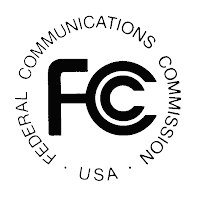MusicMaster Blog
Update On FCC ReRegulation Push Publicado por Joseph Knapp en mayo 22nd, 2008
By now you must have heard the news: it’s known as the “Localism Report” and it’s an attempt by the FCC to bring back old regulations, which broadcasters believe will heavily tax their time and resources. One of the major changes is the reinstitution of the ascertainment policy, requiring stations to maintain demographic profiles of communities and consult neighborhood watch groups for input on playlist choices, ads, hosts and general content. In addition, the FCC is considering re-crafting procedural guidelines for processing license renewal applications similar to those in the 70’s, and reenacting the main studio rule to eliminate remote s tudios and stop voicetracking. The push to re-instate these policies fails to recognize the fact that the media marketplace has changed over the past few decades, and that these regulations would burden local broadcast radio with rules and associated costs that would not affect their competitors in cable, satellite and internet broadcasting. Furthermore, the regulations are wholly unnecessary. Local broadcasters have a natural interest in the important issues within their communities due to the obvious marketplace incentives, not formal ascertainment requirements.
tudios and stop voicetracking. The push to re-instate these policies fails to recognize the fact that the media marketplace has changed over the past few decades, and that these regulations would burden local broadcast radio with rules and associated costs that would not affect their competitors in cable, satellite and internet broadcasting. Furthermore, the regulations are wholly unnecessary. Local broadcasters have a natural interest in the important issues within their communities due to the obvious marketplace incentives, not formal ascertainment requirements.
Yesterday, House Energy and Commerce Ranking Member Joe Barton and committee member Cliff Stearns sent a letter to the FCC Chairman Kevin Martin. The letter cited the 1984 Television Deregulation Order, wherein the FCC itself noted that formal ascertainment requirements were “neither necessary nor, in view of significant costs, appropriate.” Regarding the change to the “main studio rule” they cited the 1987 Radio and Television Main Studio Rule Order, in which the FCC first relaxed the ‘main studio rule,’ noting that advances in telecommunications and transportation deemed that it was no longer necessary for a studio to be located within the community in order to still be accessible to it’s listeners. This change, which was further reinforced in 1998, allowed broadcasters with multiple licenses in an area to co-locate main studios and combine resources. Changes to the ‘main studio rule’ at this point in time would be costly to those stations that have since relied on it, and would provide them no corresponding benefit. As for the push to reinstate the rule against ‘voicetracking,’ the protestors cite the 1995 FCC report that deemed the regulation superfluous on the basis of new technology. The FCC’s intent may be to increase the ‘personal’ nature of each station, but this is a decision that is best left in the hands of the licensees. Those who would choose to staff the studio 24-7 would do so only if the market incentives outweighed the associated costs.
The proposed rule changes not only ignore precedents set by the FCC itself and violate the First Amendment, but are ostensibly backwards. If the rules were originally eliminated due to modernization and expansion of the industry, then why reinstate them when radio has only moved forward since then? Apart from Barton and Stearns’ letter, 28 senators and 123 members of the House to date have sent similar letters to the FCC. The members of the House agreed that while the FCC was correct to aim for more and better local programming, they felt that federal mandates should not be the means of achieving that goal. Forcing broadcasters to air specific programming creates “clear constitutional concerns.” Furthermore, requiring licensees to form advisory boards to interact with their communities would weigh down the marketplace with more layers of bureaucracy and cost the broadcast industry millions of dollars, which would actually hurt their ability to serve local interests. What do you think?

